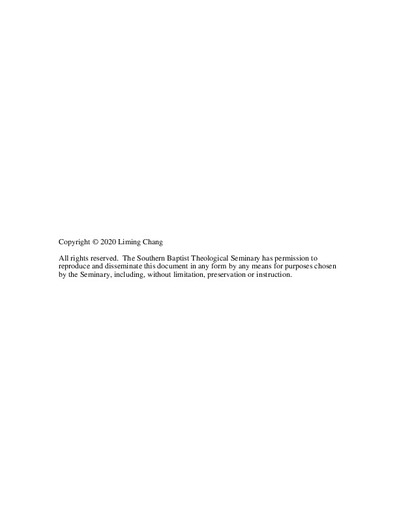When Does Personhood Begin?
Abstract
Chapter 1 introduces the main research question to be answered: when does personhood begin? The chapter outlines the context of the debate, explains the importance of this issue and its relevance to Christian life, and presents the thesis and methodology of this dissertation.Chapter 2 sets a foundation for the debate by explaining the biological facet, which is a general revelation that God displays to the whole world. Referencing scientific literature, this chapter presents a biological overview of the human embryo’s development from a fertilized ovum, and explains scientific terms that appear in later discussions.
Chapter 3 reviews the development of the concepts of personhood and soul throughout history. This chapter examines words in the original biblical language that refer to the soul or to the image of God, in order to clarify Scripture’s description of the components of a person and Scripture’s definition of Imago Dei.
Chapter 4 compares creationism and traducianism, two major theological schools of thought on the soul’s origin, and argues that traducianism is more plausible and consistent with biblical and scientific data.
Chapter 5 systematically analyzes biblical descriptions of embryonic and fetal development, in a reversed chronological order (i.e. from the fetal stage back to conception), to argue that Scripture assumes full personhood for every human being from the moment of conception.
Chapter 6, relying on conclusions from previous chapters, responds to various lines of challenges that undermine the personhood of embryos. This chapter is organized by stages of embryonic development and covers topics such as the personhood of twins and the ontological identity of an early embryo.
Chapter 7 explores personal eschatology and Christology, two themes in systematic theology that relate to embryonic personhood.
Chapter 8 makes practical applications to ART and embryonic stem cell research, two contemporary bioethical issues closely linked to embryonic personhood.

